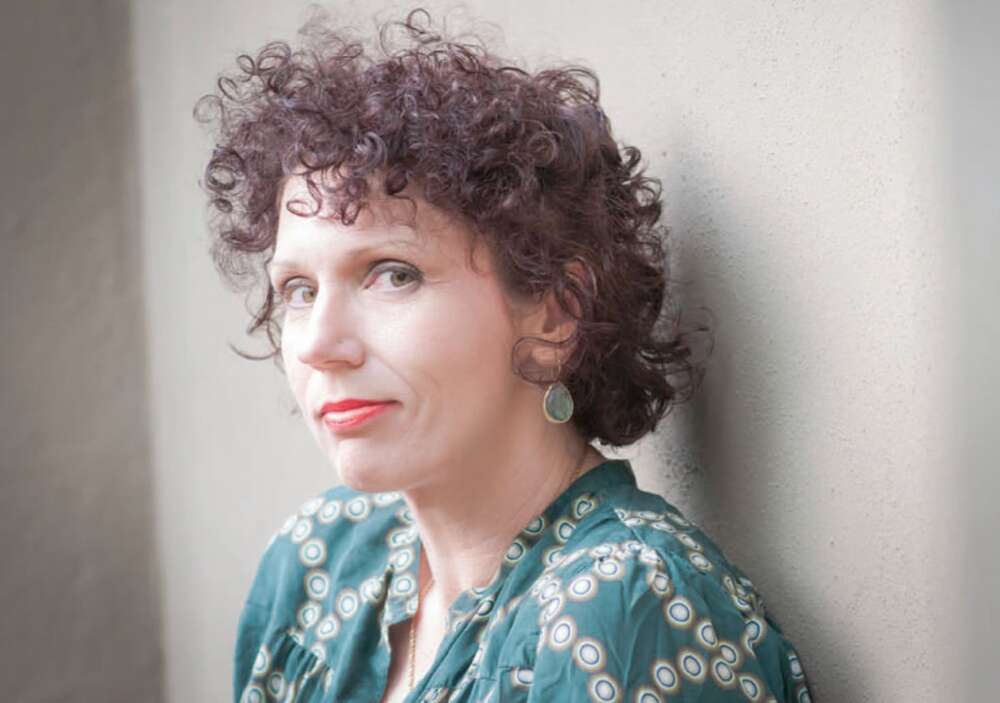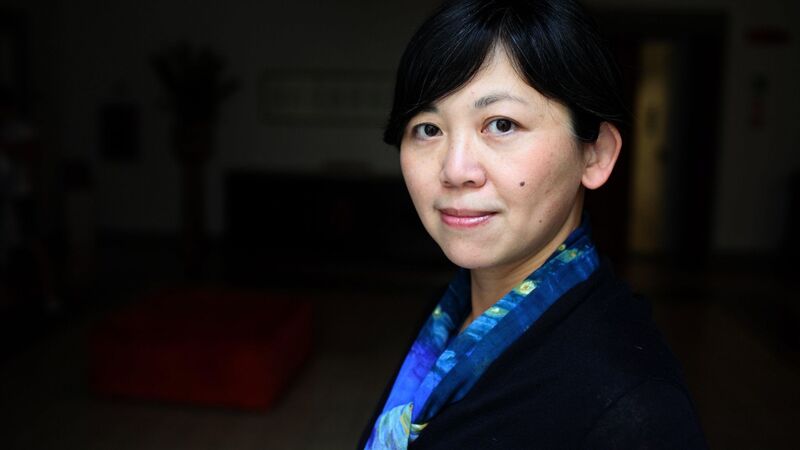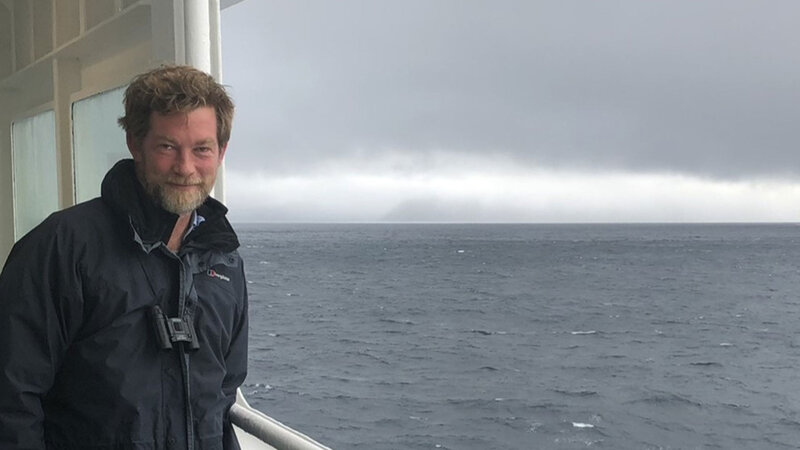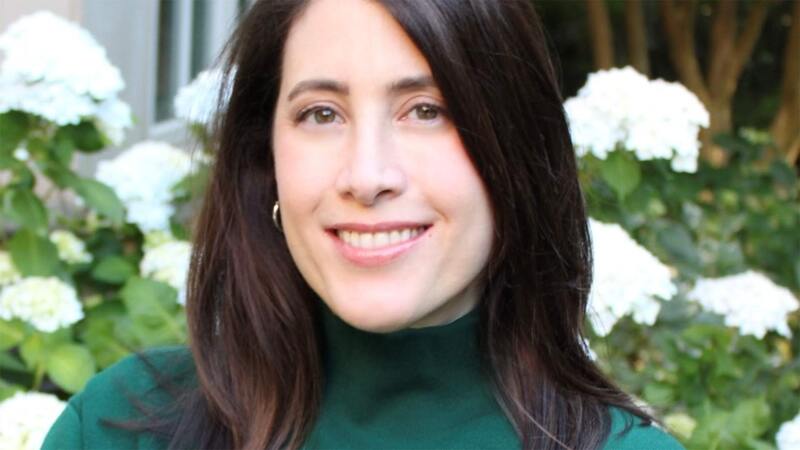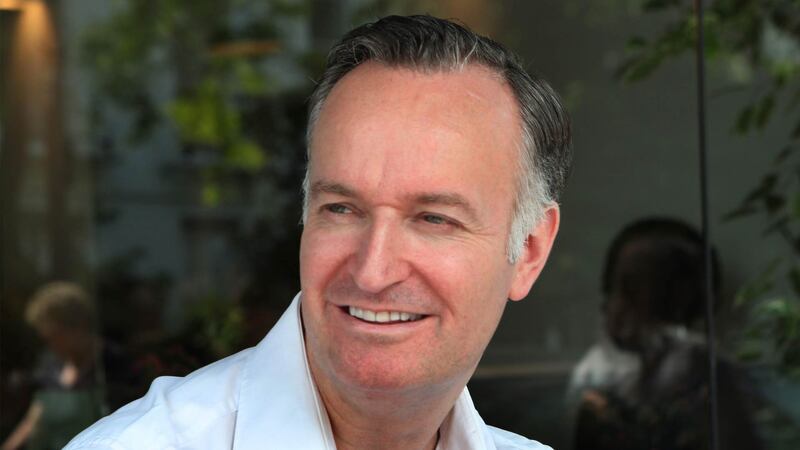You are viewing your 1 free article this month. Login to read more articles.
Jill Essbaum | 'I really did miss Switzerland, because I did immerse myself in it and when you attach yourself to something, you come to love it'
“I had a realisation that the book wasn’t about me,” says Jill Alexander Essbaum of her début novel Hausfrau (Mantle, March), “and it was something that had already happened, so I took it out of the first person and out of the present tense and it fell out very quickly.”
Hausfrau may not be about Essbaum, but it is the American poet’s attempt to address the unhappiness she felt during a brief period living in Switzerland with her then husband. But it was only after taking the “I” out that she was able to write beyond the first 100 pages of the story.
A bleak, addictive tale of being an outsider, Hausfrau follows Anna Benz, an American woman who lives with a successful husband and three beautiful children in Dietlikon, a picturesque suburb of Zurich. But scratch away at the picture-perfect postcard and it becomes apparent that Anna is a deeply unhappy woman, disconnected from her life and the home in which she lives.
We join Anna after she has lived in Dietlikon for almost a decade, as she finally takes her first German lesson, and embarks on an affair with a fellow student—Scotsman Archie, who owns a whisky shop with his brother. As the book progresses, Anna moves further down a self-destructive path, her past and present winding together to a tragic finale.
While there are some similarities between Essbaum’s own life and aspects of Hausfrau—the author’s home while in Switzerland was in Dietlikon, and she found it difficult, like Anna, living in a place where she didn’t speak the language—unlike Anna, Essbaum did make an effort to engage with Swiss society during her two years there. And unlike her protagonist, the writer is an engaged, charismatic character who has no trouble expressing herself.
But when she came back to the US, grateful to be home despite her return being more difficult than she had expected, Essbaum decided she needed a way to explain the experience of living in a foreign country. “I was very unhappy [in Switzerland],” she says from her home in Texas. “It was an unhappy experience. It’s hard to live in a foreign country when you don’t speak the language. I had to find a way to address that. I have this notion [that] even if you have a terrible period of your life, you don’t want to forget it, because that would be time wasted. I didn’t want to waste the angst. I didn’t want to forget anything. I wanted to write the details down.”
I have this notion [that] even if you have a terrible period of your life, you don’t want to forget it, because that would be time wasted
Those details—such as “what the grocery store looked like and what it was like to ride the trains”—help to inform the story of Hausfrau, while language and its rules, and words and their multiple meanings, also play an important part.
Essbaum is an award-winning poet, whose first collection, Heaven (Middlebury College Press), was published in 2000. She had dreamed of writing a novel since school, but until Hausfrau she “didn’t have any stories to tell”. Now that she has completed her first novel, she says: “I feel like a newborn child. I have just entered this new world. It’s so exciting all over again.”
For Essbaum, the power lies in words and language, rather than in stories, and “it’s what happens when words get together in a space and have a little party” that excites her.
In Hausfrau Essbaum uses tools learnt from writing poetry to add an extra layer of meaning to Anna’s actions. “I use a lot of puns and rhyme and wonky meter,” she says. “When I was writing this book, whenever I sort of hit a wall I stopped trying to think with my head, I tried to think with my ears and tried to figure out how to change the sound and rhythm [of what I was writing]. You can feel sound as well as hear it. I use that in poetry and I used it in moments in Hausfrau.”
Breaking point
Hausfrau is not a happy book. Anna’s downward spiral is clear to see from the beginning, and when tragedy strikes two-thirds of the way through the book, it is only a matter of time before she hits rock bottom.
Anna is a complicated character whose unhappiness is of her own doing, and whose actions bring her, and those around her, ever closer to tragedy. “I have never thought of her as a victim of the people around her,” says Essbaum. “I also don’t think her problems are of her own making. I think her problems are a result of her choices. However, she’s an exceptionally busted person. She’s broken. She came from the factory in pieces; on some basic level she’s irreparable.”
How Essbaum decided to “fix” Anna was never in doubt. “I never felt like there could be any other way for the book to end,” she says. “It couldn’t be a surprise. I knew I had to show my cards straight up. I could be suspenseful about it but I couldn’t say: ‘Surprise!’ Maybe I could play with the suspense level a bit—I think that’s what I managed to do. As I was writing, towards the end I wanted to skip ahead and write the last chapter but I made myself not do that.”
Interspersed in the main narrative of Hausfrau are snippets of therapy sessions Anna has with Doktor Messerli, a practioner of Jungian psychoanalysis. Essbaum said Jungian theory felt “natural to the story”, and that she chose it because she wanted to “make a very Swiss book”.
“Jungian psychoanalysis really explores concepts,” says Essbaum. “This whole idea that maybe there is something bigger driving Anna, bigger than she is, that’s maybe just a little bit out of her control. But it’s not. She has to also take personal responsibility for it. I don’t know that I can say Anna’s a better person [by the end of the book], but she’s entirely conscious and that is the goal of psychoanalysis. She’s very calm, she feels okay, but she’s not better.”
Essbaum’s cast of characters—including Ursula, Anna’s mother-in-law who is “pretty foul” but does her duty; and Mary, a fellow expat—serve as a contrast to the disconnected Anna, whose only real relationship is with her husband, the imposing Bruno.
“It’s true, as broken as [their relationship] is,” says Essbaum, “they really do relate to each other. She has real feeling towards him and she is connected to him. He’s not just terrible, he’s very handsome and proficient, and he’s very impatient but he’s also incredibly patient.”
Despite the novel’s darkness, the surprisingly pleasant result of writing Hausfrau, and reliving memories of Switzerland, was that Essbaum realised her feelings towards the country were more complicated than she had first thought. “It turns out I actually love Switzerland,” she says. “I left there saying: ‘I hate this country, I’ll never be back’. As I started writing the book, all these things I didn’t want to forget, I really did miss Switzerland, because I did immerse myself in it and when you attach yourself to something, you come to love it—even if it doesn’t appear to be good for you.”
Metadata
Publication 26.03.15
Formats EB (£8.99)/HB (£12.99)/ TPB (£12.99)
ISBN 9781447280798/9781447280828/9781447280804
Rights UK and Commonwealth (Mantle), US (Random House US), France, Holland, Germany, Israel, Italy, Poland, Brazil, Serbia, Spain, Sweden
Editor Maria Rejt, Mantle
Agent Kathleen Anderson, Anderson Literary Management





